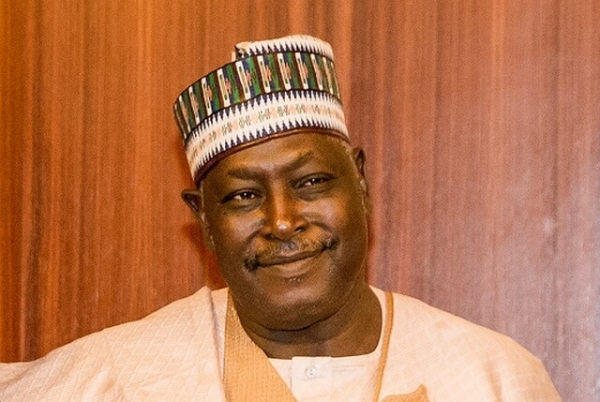This post has already been read 2961 times!
Sacked Secretary to the Government of the Federation (SGF), Babachir Lawal, has been remanded in the custody of the Economic and Financial Crimes Commission (EFCC).
The Federal Capital Territory (FCT) High Court presided over by Justice Jude Okeke ordered his detention after the commission arraigned him yesterday alongside three others, Hamidu David Lawal, a director of Rholavision Engineering Limited; an employee of the company, Sulaiman Abubakar, and the Managing Director of Josmon Technologies Limited, Apeh John, on a 10-count charge bordering on corruption.
The accused were said to have committed the offences contrary to Section 26(1)(C) of the Corrupt Practices and other related Offences Act 2000 and punishable under Section 12 of same law.
When the charges were read yesterday, the ex-scribe pleaded not guilty while his counsel, Chief Akin Olujinmi (SAN), applied for bail.
The court ruled that he should be remanded while his bail application would be heard today.
Meanwhile, as the trial of the suspended Chief Justice of Nigeria (CJN), Walter Onnoghen, at the Code of Conduct Tribunal (CCT), Abuja resumes today, the Nigerian Bar Association (NBA) has called on the Federal Government to discontinue the charge in the interest of due process.
The body said it had become necessary due to the fact that one of the two petitions against the jurist before the National Judicial Council (NJC) was same with the one that motivated the CCT charge.
In a statement yesterday, NBA president, Paul Usoro (SAN), commended the Federal Government, represented by the EFCC, for adhering to due process by submitting the second petition to the NJC for consideration.
The lawyers’ body said: “In like manner and in adherence to the law and due process, we urge the Federal Government to discontinue the CCT charge and allow the NJC consider the initial petition which, as widely reported, has already been responded to by the CJN.
“Second, the chairman of the CCT, Danladi Umar, in his response to a petition that was written against him and which was forwarded to him by the Federal Judicial Service Commission (FJSC), states emphatically that he and his tribunal are answerable and report only to the presidency.”
NBA therefore argued that it would mock the concept of constitutional separation of powers and completely erode the independence of the judiciary that should exist between the three arms of government if the CJN, the head of an independent arm of government, is made to stand trial before a tribunal whose chairman sees himself and his tribunal as being under and answerable to the presidency only.
According to the organisation, it is precisely for this reason that the constitution created the NJC to remove any misperceptions, expressing pleasure that government had warmed up to the utilisation of that due process, as illustrated by the submission of the EFCC petition to the NJC.
It stated: “The spectacle of having our CJN, while still holding that title, in the dock before the CCT or any other court, truly diminishes all of us, not least the executive arm of government. The NJC process allows an initial determination to be made on the petitions against the CJN and if His Lordship is found liable or wanting howsoever, appropriate sanctions would be imposed by the NJC including recommendation for his dismissal or retirement.”



